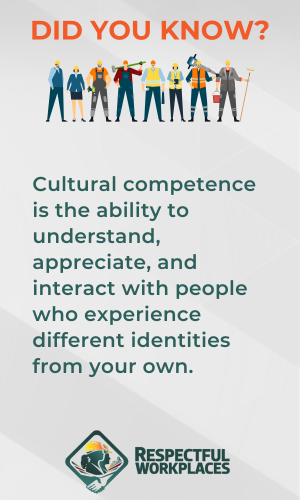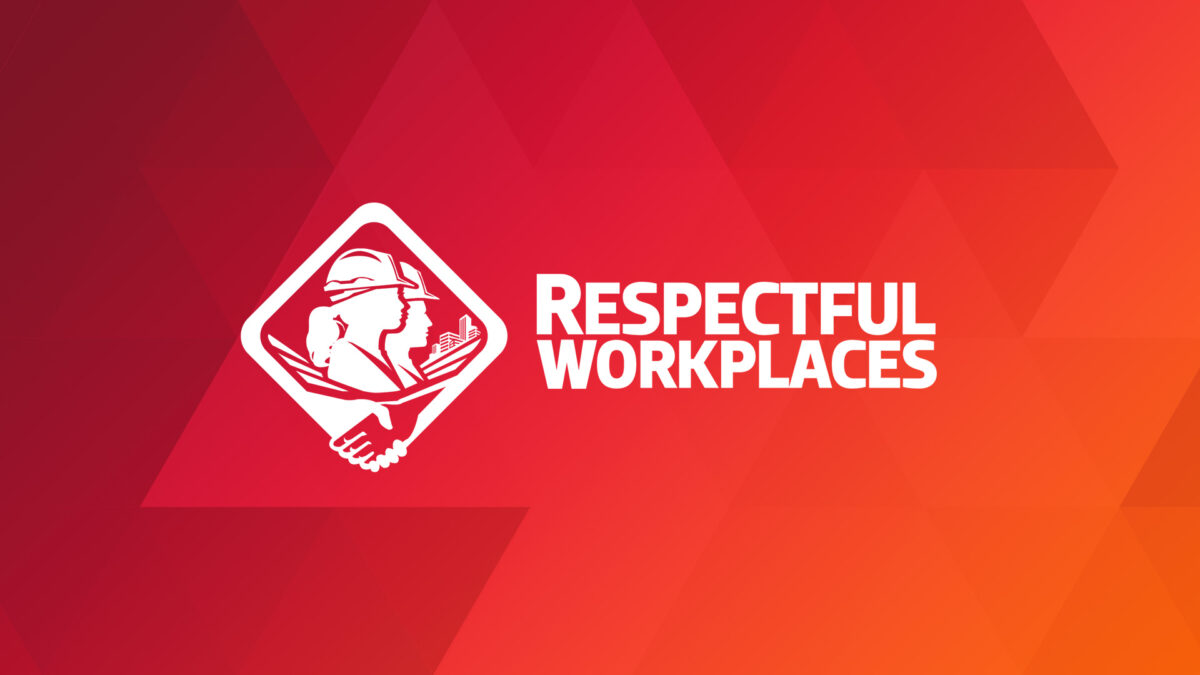Inclusive leaders are committed to fostering an environment where all team members feel valued and included.
This means going beyond mere tolerance of differences to actively celebrating and leveraging people’s differences for the team’s benefit. The pillars of inclusive leadership—understanding one’s own bias, being culturally competent, having an awareness and understanding of privilege, and practicing active listening and empathy—are crucial for any organization to thrive in today’s global and diverse market.
Cultural competence (sometimes called intercultural competence) is the ability to understand, appreciate, and interact with people who experience different identities from your own. It’s the ability to adapt to the difference and appreciate it. Culturally competent leaders understand the importance of valuing diversity, not just in words but through actionable practices. They recognize that each team member’s unique background contributes to a richer, more innovative, and more effective team dynamic.

Steps to cultivate cultural competence
Expanding knowledge about various identities involves delving into different groups’ customs, values, and communication styles. The Government of Canada’s website provides a wealth of information on cultural diversity and the importance of cultural competence in fostering an inclusive society.
Engagement with people different from oneself enriches leaders’ perspectives, allowing them to appreciate the multifaceted nature of the communities they serve. Participating in cultural events, forums, and workshops can facilitate this engagement. For instance, Canadian Multiculturalism Day presents an excellent opportunity for leaders to connect with and learn from diverse communities.
But it’s important to understand that cultural competence goes beyond “ethnocultural” identities. Being culturally competent is not just adapting and valuing people of different ethnicities and races; it’s about valuing different identities of all kinds, be they genders, sexualities, religions, educational backgrounds, political views, and many others.
Challenges and solutions in achieving cultural competence
Achieving cultural competence within an organization presents many challenges because the act of being culturally competent is about the individual, not the workplace. A workplace cannot be culturally competent. Only the people in that workplace have that ability. One common barrier is the lack of awareness and understanding of diverse identities, which can lead to miscommunications and misunderstandings. To overcome this, employers can implement comprehensive training programs that educate employees on differences of all kinds and the importance of inclusivity in the workplace.
Another significant challenge is resistance to change. Some individuals may hold conscious or unconscious biases that can hinder the adoption of inclusive practices. Addressing this includes promoting open dialogue, encouraging feedback, and demonstrating the tangible benefits of a culturally competent environment. This area is where employers are able to impact change in that they can stand behind their code of conduct. A code of conduct is not simply a document. Employers need to make people aware of their responsibilities under the code and then enforce the code when an employee’s behaviour is not aligned with that code. A person must exercise a level of cultural competence to be aligned with their employer’s code of conduct, in that they must embrace and see value in the differences of their colleagues.
Tools and resources for enhancing cultural competence
Like any skill, cultural competence is one that needs to be assessed and developed. A starting point is to complete an assessment such as the Intercultural Development Inventory (IDI). Conducted by a qualified assessor, “the Intercultural Development Inventory assesses individuals’ and groups’ mindset towards cultural differences and similarities. IDI results are summarized in easy-to-understand reports that can help you and your team get started in their intercultural development.” The purpose of the IDI is to help people understand where a person is starting their journey of cultural competence and to act as a baseline.
Once a person understands where they are, they can start to develop their cultural competence. This work can include many outcomes: recommended readings such as “The Culture Map” by Erin Meyer give insightful perspectives on navigating the complexities of global business cultures. Apps like VIZEdi help users make their language more inclusive, helping individuals break down barriers through communication. Moreover, platforms like GlobeSmart provide users with detailed cultural profiles of over 95 countries, making it easier for leaders to understand and appreciate the cultural backgrounds of their team members. You can also expose yourself to the differences of others through TV shows, podcasts, and other media created by and for different groups. Learning is everywhere.
To sustain cultural competence, leaders must remain vigilant and proactive. They must seek out resources and learning opportunities to enhance their understanding and skills. Engaging with communities that are different from their own can provide valuable insights and foster empathy. Implementing policies and practices that support diversity and inclusion can help institutionalize cultural competence within the organization. The journey of cultural competence is an ongoing process that requires dedication, openness, and a commitment to growing.
Michael Bach is an author and speaker, a thought leader in inclusion, diversity, equity, and accessibility, and an IDEA consultant to BuildForce Canada.

Respectful and Inclusive Workplaces
